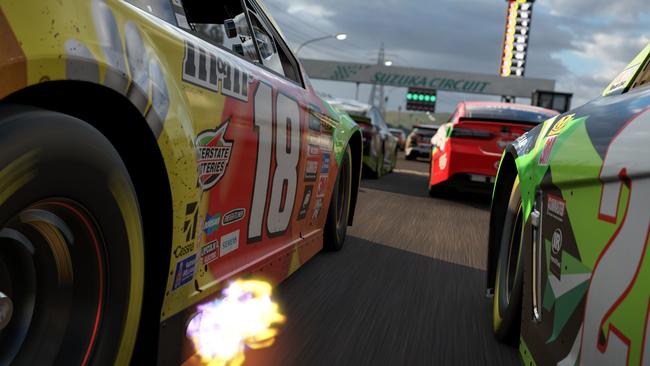How your kids are being turned into gambling addicts by video game “loot boxes”
AN ANNUAL report from the Gambling Commison found children as young as 11 years of age are “skin gambling” online, with parents completely unaware.
Gaming
Don't miss out on the headlines from Gaming. Followed categories will be added to My News.
IF YOUR children play games on phones (whose don’t!?) or you’re thinking of buying your kid the latest video game this Christmas, read this warning: you could be paving the way for your child to become a gambling addict.
Las week, the Gambling Commission’s annual report found that children as young as 11 years of age are “skin gambling” online — paying money for the chance to win in-game virtual items. But this, while alarming, is just the tip of the iceberg, reports The Sun.
It’s the terrifying phenomenon of “loot boxes” that are the most worrying and potentially dangerous aspect of e-gaming for children right now. “Loot boxes” are everywhere — they are otherwise known as crates, chests, cases, bundles, and card packs.
The term “loot boxes” was coined about a year ago and they feature in games such as Overwatch, Middle-earth: Shadow of War, Star Wars Battlefront 2, FIFA Ultimate Team, Mass Effect: Andromeda, Fortress 2, Injustice 2, Lawbreakers, Forza Motorsport 7, and For Honor. They allow players to use real money to buy the chance to win prizes for in-game playing.
In FIFA Ultimate Team, for example, players can purchase gold, silver or bronze card packs, either using in-game currency or real money, in the hope of getting their hands on top talent to improve their teams.
But there’s no guarantee of landing A-listers like Ronaldo or Messi — the cards won’t all be star players and will more likely be less valuable collectables.
In games such as Star Wars Battlefront 2, loot boxes usually offer advantages to the player, such as speeding up a task or jumping ahead a level. Or it might provide a cosmetic upgrade, such as choosing a new outfit for a character.
The issue is that the buying of crates or loot boxes is a form of gambling because players, often children, are being asked to buy something of financial value that could end up being of lower financial value than the amount they paid.
Buying a loot box is like buying a raffle ticket. You may win a prize but the prize could be of much less financial value than the cost of a ticket. The Gambling Commission would say that these virtual items have no financial value and therefore paying for them is not gambling. I strongly disagree.

Players can buy and sell such in-game items at third-party virtual asset auction sites (where gaming skins can be traded) which means that the items do have a monetary value and would therefore come under the Gambling Commission’s definition of gambling.
The rate of problem gambling among teenagers is higher than in adults.
In the UK, the problem gambling rate for adolescents accounts for between 0.8-2.2 per cent of the teenage population compared with just 0.5 per cent in the adult population.
Teenagers like things that are risky and rewarding. What you often find is that with activities such as drinking alcohol, smoking cigarettes and gambling, they get more of a thrill from doing it than a fully mature adult brain. Basic teenager brains are hardwired to love risk.
While there is no evidence of a link between skin betting and problem gambling, there is now growing evidence that the playing of gambling-like games without money being involved (such as playing Slotzmania or Texas hold ‘em Poker on social networking sites) is a gateway to real money gambling and is one of the risk factors for teenage problem gambling.
I’d rather be on the side of safety and not allow children to play gambling-like games in the first place. If a child is 11, 12 or 13 years old, the buying of loot boxes is gambling in all but name.
We know the playing of gambling-like activities is a major risk factor for both gambling with real money in the first place and problem gambling in later life. Even access to play a free game should be behind age verification; you should need to be 18 or above to do that.
With “freemium games” children can play the games for nothing but have to pay for additional content. Freemium games are a way of luring people in to play in the first place but to progress in the game it will cost money. Arguably, it’s a bit like a drug dealer giving out free drugs to get people hooked.
The good thing is parents are now hearing about things like “skin gambling” and “loot boxes” but children also need to be educated about these activities as much as drinking, drugs or the risks of underage sex. Parents need to get to grips with what is going on in their children’s worlds.
We have a duty to them and parents shouldn’t just be using gaming via tablets and smartphones as a convenient electronic babysitter.
This story first appeared on The Sun.
Originally published as How your kids are being turned into gambling addicts by video game “loot boxes”


